
Cary Grant was an English-American actor. He was known for his Mid-Atlantic accent, debonair demeanor, light-hearted approach to acting, and sense of comedic timing. He was one of classic Hollywood's definitive leading men. He was nominated twice for the Academy Award, was honored with an Academy Honorary Award in 1970, and received the Kennedy Center Honor in 1981. He was named the second greatest male star of the Golden Age of Hollywood by the American Film Institute in 1999.

Sofia Costanza Brigida Villani Scicolone, known professionally as Sophia Loren, is an Italian actress. She was named by the American Film Institute as one of the greatest stars of classical Hollywood cinema and is one of the last surviving major stars from the era. Loren is also the only remaining living person to appear on AFI's list of the 50 greatest stars of American film history, positioned 21st.

Two Women is a 1960 war drama film directed by Vittorio De Sica from a screenplay he co-wrote with Cesare Zavattini, based on the 1957 novel of the same name by Alberto Moravia. The film stars Sophia Loren, Jean-Paul Belmondo, Eleonora Brown and Raf Vallone. It tells the story of a woman trying to protect her young daughter from the horrors of war. The story is fictional, but based on actual events of 1944 in Rome and rural Lazio, during the Marocchinate.

Paul Petersen is an American actor, singer, novelist and activist.
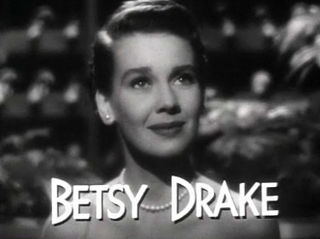
Betsy Drake was an American actress, writer and psychotherapist. She was the third wife of actor Cary Grant.
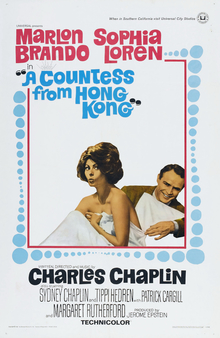
A Countess from Hong Kong is a 1967 British romantic comedy film scored, written, and directed by Charlie Chaplin, and the final film directed, written, produced and scored by him. Based on the life of a former Russian aristocrat, as he calls her in his 1922 book My Trip Abroad. She was a Russian singer and dancer who "was a stateless person marooned in France without a passport." The film starred Marlon Brando and Sophia Loren, and revolved around an American diplomat who falls in love with a stowaway on a cruise. Sydney Chaplin, Tippi Hedren, Patrick Cargill and Margaret Rutherford co-star in major supporting roles; Chaplin also made a cameo, marking his final screen appearance.
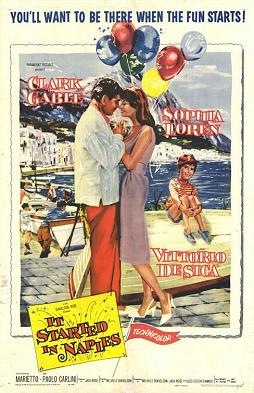
It Started in Naples is a 1960 American romantic comedy film directed by Melville Shavelson and produced by Jack Rose from a screenplay by Suso Cecchi d'Amico, based on the story by Michael Pertwee and Jack Davies. The Technicolor cinematography was directed by Robert Surtees. The film stars Clark Gable, Sophia Loren, Vittorio De Sica and an Italian cast. This was Gable's final film to be released within his lifetime and his last film in color.

Charles Herbert Saperstein, known as Charles Herbert, was an American child actor of the 1950s and 1960s. Before reaching his teens, Herbert was renowned by a generation of moviegoers for an on-screen broody, mature style and wit that enabled him to go one-on-one with some of the biggest names in the industry, and his appearances in a handful of films in the sci-fi/horror genre garnered him an immortality there. In six years, he appeared in 20 Hollywood features.

The 31st Academy Awards ceremony was held on April 6, 1959, to honor the best films of 1958. The night was dominated by Gigi, which won nine Oscars, breaking the previous record of eight set by Gone with the Wind and tied by From Here to Eternity and On the Waterfront.
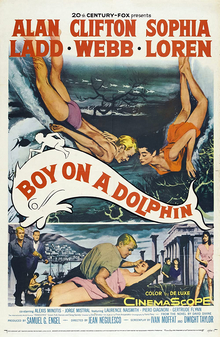
Boy on a Dolphin is a 1957 American romantic adventure film theatrically released by 20th Century-Fox. It is set in Greece and shot in DeLuxe Color and CinemaScope. It was directed by Jean Negulesco and produced by Samuel G. Engel from a screenplay by Ivan Moffat and Dwight Taylor, based on the 1955 novel of the same name by David Divine.
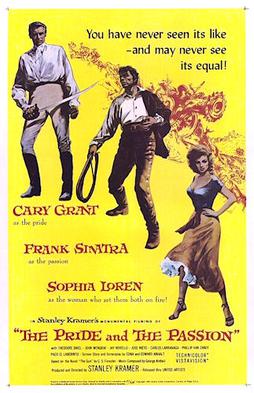
The Pride and the Passion is a 1957 American Napoleonic-era war film in Technicolor and VistaVision from United Artists, produced and directed by Stanley Kramer, starring Cary Grant, Frank Sinatra and Sophia Loren. The film co-stars Theodore Bikel and Jay Novello.
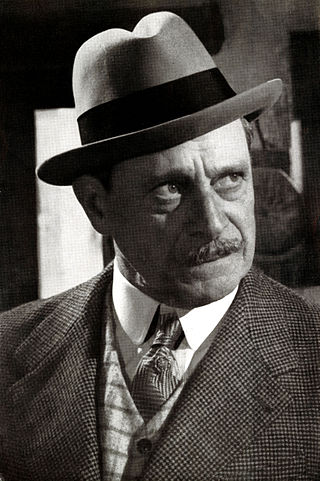
Eduardo Ciannelli was an Italian baritone and character actor with a long career in American films, mostly playing gangsters and criminals. He was sometimes credited as Edward Ciannelli.
Mimi Gibson is an American real estate agent and a former child actress, from 1951 to 1968.
The 16th Golden Globe Awards, honoring the best in film for 1958 films, were held on March 5, 1959.

Melville Shavelson was an American film director, producer, screenwriter, and author. He was President of the Writers Guild of America, West (WGAw) from 1969 to 1971, 1979 to 1981, and 1985 to 1987.
Jack Rose was an American screenwriter and producer. He began writing gags for Milton Berle and radio lines for Bob Hope before moving to screenplays. His first was 1943's Road to Rio starring Hope and Bing Crosby. In 1955, Rose produced the Hope film The Seven Little Foys, co-written and directed by his frequent collaborator Melville Shavelson. He also wrote and produced a 1962 Dean Martin romantic comedy, Who's Got the Action?

Room for One More is a 1952 American family comedy-drama film directed by Norman Taurog, produced by Henry Blanke, and starring Cary Grant and Betsy Drake. The screenplay, written by Jack Rose and Melville Shavelson, was based on the 1950 autobiography of the same name by Anna Perrott Rose.

Sophia Di Martino is an English actress known for portraying Sylvie in the Marvel Cinematic Universe television series Loki, which earned her two MTV Movie & TV Awards. She has also had starring roles in the television shows Flowers (2016–2018) and Casualty (2009–2011).
Sophia Loren: Her Own Story is a 1980 American television film directed by Mel Stuart and starring Sophia Loren as herself. The film was written by Joanna Crawford based on the 1979 biographical book Sophia, Living and Loving: Her Own Story by A.E. Hotchner and originally aired on NBC on October 26, 1980.


















